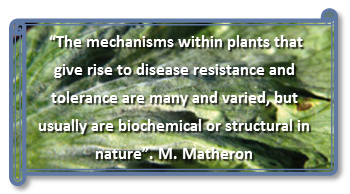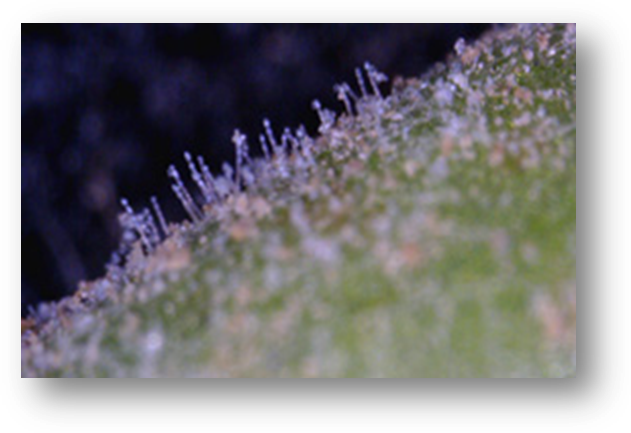
An exceptionally valuable weapon in the battle to manage plant diseases may reside
within the plant’s genetic composition. This genetic disease management tool is
commonly referred to simply as disease resistance or tolerance. These names are
often used interchangeably; however, the definitions of each term denote a significant
difference. Resistance can be thought of as the ability of a plant to exclude or
overcome the effect of a plant pathogen, whereas tolerance is the ability of a plant
infected by a pathogen to grow without dying or sustaining serious injury or yield
loss. Therefore, resistance focuses on preventing infection, whereas tolerance allows
infected plants to grow without serious injury or yield loss. Disease resistance
and tolerance are not all or nothing conditions. For example, resistance can range
from its highest level, which is called immunity, through degrees of useful resistance,
and finally to its lowest level, where a plant is highly susceptible to a particular
pathogen. Also, resistance and tolerance usually are specific to one or at most
a few diseases, and not broadly functional against many or all plant ailments. The
mechanisms within plants that give rise to disease resistance and tolerance are
many and varied, but usually are biochemical or structural in nature. Successful
suppression of pathogen activity by a plant is tied to how a particular pathogen
gains entrance into a plant to initiate disease and additionally how a plant defends
itself from that infection. One key advantage of strong genetic resistance or tolerance
is that this disease management tool will be active for the life of the plant, without
any input by the grower. In contrast, disease management products such as fungicides
may have to be applied several times so as to be in place over the entire growth
period of the plant when disease is expected. Also, disease management provided
by plant genetics often targets diseases for which no other known effective disease
management tools are known. Building disease resistance or tolerance into plants
is an ongoing activity of plant breeders, using classical as well as modern genetic
manipulation techniques to achieve this goal.





